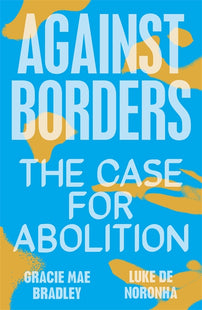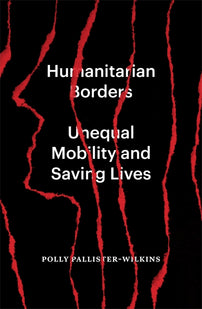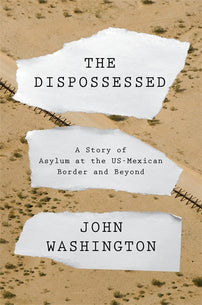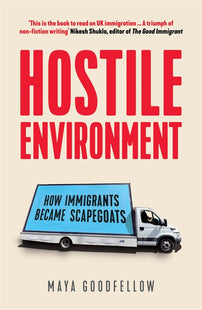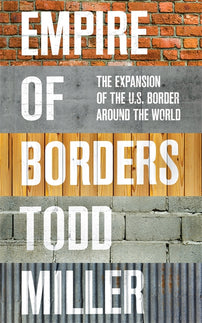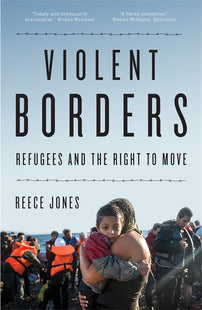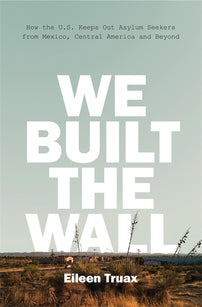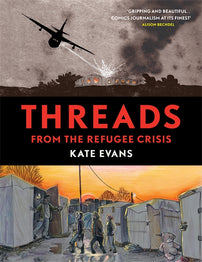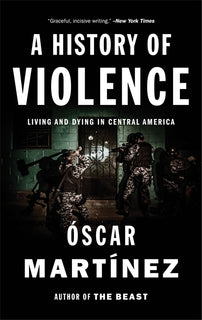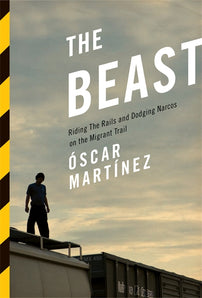No Walls, No Borders
A reading list on the changing role of borders and how we consider freedom of movement, globalization, and humanitarian crises across the world.

This reading list on borders and immigration provides an important starting point for thinking through what a world with no borders would look like and how to get there. These books contextualize migration crises rooted in the violence of capitalism, legacies of colonialism, and racist state narratives.
Until January 2, 2023 at 11:59PM EST, we have 40% off ALL books (see full details here)!
See our Gift Guide and all our reading lists, including The Year in 10 Books, Radicalize Your Niblings, Radical Happiness, Tis the Season to Abolish the Family, Understanding the Cost of Living Crisis, Christianity and Anticapitalism.
Borders are not only at the edges of national territory, in airports, or at border walls. Borders are everyday and everywhere; they follow people around and get between us, and disrupt our collective safety, freedom and flourishing.
This is a passionate manifesto for border abolition, arguing that we must transform society and our relationships to one another, and build a world in which everyone has the freedom to move and to stay.
[book-strip index="2" style="buy"]Interrogates the politics of humanitarian responses to border violence and unequal mobility, arguing that such responses mask underlying injustices, depoliticise violent borders and bolster paternalist approaches to suffering.
[book-strip index="3" style="buy"]The Dispossessed tells the story of a twenty-four-year-old Salvadoran man, Arnovis, whose family’s search for safety shows how the United States—in concert with other Western nations—has gutted asylum protections for the world’s most vulnerable. Crisscrossing the border and Central America, John Washington traces one man’s quest for asylum.
[book-strip index="4" style="buy"]For decades, Republicans and Democrats alike have employed xenophobic ideas and policies, declaring time and again that “illegal immigration” is a threat to the nation’s security, wellbeing, and future. The profound forces of all-American nativism have, in fact, been pushing politics so far to the right over the last forty years that, for many people, Trump began to look reasonable. Issues as diverse as austerity economics, free trade, mass incarceration, the drug war, and the Alt-Right movement are united by the ideology of nativism.
[book-strip index="5" style="buy"]From the 1960s the UK’s immigration policy—introduced by both Labour and Tory governments—has been a toxic combination of racism and xenophobia. Maya Goodfellow tracks this history through to the present day, looking at both legislation and rhetoric, to show that distinct forms of racism and dehumanisation have produced a confused and draconian immigration system.
[book-strip index="6" style="buy"]The twenty-first century has witnessed the rapid hardening of international borders. Security, surveillance, and militarization are widening the chasm between those who travel where they please and those whose movements are restricted. But that is only part of the story. Empire of Borders is a tremendous work of narrative investigative journalism that traces the rise of this border regime.
[book-strip index="7" style="buy"]With the growth of borders and resource enclosures, the deaths of migrants in search of a better life are intimately connected to climate change, environmental degradation, and the growth of global wealth inequality. Jones crosses the migrant trails of the world, documenting the billions of dollars spent on border security projects and explores how borders are formed and their dire consequences.
[book-strip index="8" style="buy"]Journalist Eileen Truax tells the story of Carlos Specter, a Mexican American layer in El Paso, Texas who through filing hundreds of political asylum cases has brought increased attention to the corruption in America's asylum process at both a local and national level. We Built the Wall is an immersive, engrossing story of a new front in the immigration wars.
[book-strip index="9" style="buy"]Combining the techniques of eyewitness reportage with the medium of comic-book storytelling, Threads is an unforgettable account of Kate Evans' time volunteering with the refugee aid effort in the Jungle—the makeshift town within the French port town of Calais that was home to thousands of refugees from the Middle East and Africa until it was demolished in October 2016. By turns shocking, infuriating, wry, and heartbreaking, Threads addresses one of the most pressing issues of modern times to make a compelling case for the compassionate treatment of refugees and the free movement of peoples.
[book-strip index="10" style="buy"]In 2016, a small protest encampment at the Standing Rock Reservation in North Dakota, initially established to block construction of the Dakota Access oil pipeline, grew to be the largest Indigenous protest movement in the twenty-first century. Water Protectors knew this battle for native sovereignty had already been fought many times before, and that, even after the encampment was gone, their anticolonial struggle would continue. In Our History Is the Future, Nick Estes traces traditions of Indigenous resistance that led to the #NoDAPL movement.
[book-strip index="11" style="buy"]The Lights in the Distance take readers through six “borderlands’—areas of Europe where the refugee crisis is at its most acute. Moving through places where Europe’s history of conflict, nationalism, and conquest is never far from the surface, Daniel Trilling explains how the present crisis is driven by racism and fear of the “illegal” immigrant; how Europeans came to fool themselves that Europe could ever really be a “fortress” cut off from the world around it; and how the growth of systems designed to control and deter refugees is leading to disaster.
[book-strip index="12" style="buy"]A History of Violence is a book of reportage about the grisly death toll of the daily life in countries that comprise the Northern Triangle — El Salvador, Honduras, Guatemala, and Nicaragua. Martínez’s intimate portraits of daily life in the northern triangle show how the long-lasting effects of US intervention and the War on Drugs created a region of fear; a place where citizens suffer from the some of the highest homicide rates in the world, and many are forced to flee for North America.
[book-strip index="13" style="buy"]A shocking reminder of the dangers migrants face on their journeys, The Beast chronicles the stories of some of the 20,000 people who “disappear” while travelling through Central America with the hope of finding safety and shelter. Just as those seeking to enter Europe have to navigate the waves of the Mediterranean, people on the American “migrant trail” risk kidnapping by traffickers and drug smugglers. If understanding the experiences of those searching for refuge is essential to combating anti-migrant racism, then this book is required reading.
